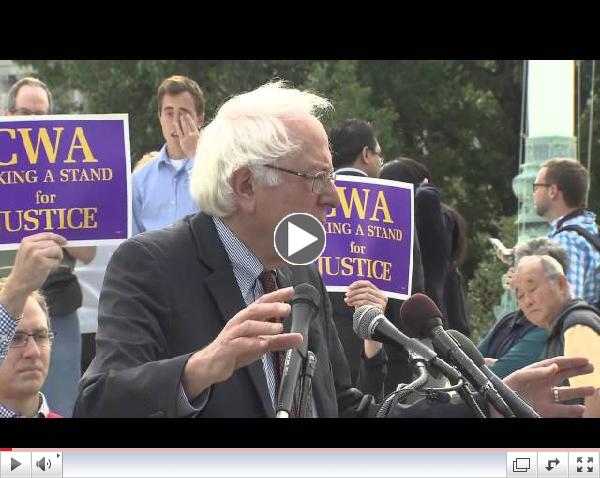 The McCutcheon Ruling: Myth vs. Fact
On Wednesday, April 2, the Supreme Court ruled 5-4 in the McCutcheon vs. Federal Election Commission case concerning political contributions. Congress can only regulate campaign contributions in order to protect against corruption or the appearance of corruption--a quid pro quo arrangement between donor and political recipient, not considered "general influence." The Federal Election Campaign Act of 1971 (FECA) and the Bipartisan Campaign Reform Act of 2002 (BCRA, also known as McCain-Feingold) imposed two limits on campaign contributions: a limit on how much money a donor can give to a candidate or committee, and a limit on how many candidates or committees a donor can give to, abiding by the limit for each candidate. Last Wednesday, the Supreme Court struck down the aggregate contribution limits, meaning that donors can give to as many candidates or committees as they like while still abiding by the individual limits.
Here are some quick talking points on the ruling:
- The McCutcheon ruling does not mean democracy is for sale or that individuals can contribute unlimited amounts of money to candidates. The ruling keeps intact limits on how much a donor can give to a single candidate or committee.
- The McCutcheon ruling simply removes the limit on how many candidates or committees a donor can give the limited amount to.
Many on the left were quick to condemn the ruling, but were not clear in their critiques of the ruling and therefore spread falsehoods. Below are some instances of leftist bias obscuring the facts of the McCutcheon ruling:
- President Jimmy Carter: In an interview with Politico that was posted Monday, President Jimmy Carter said that the Supreme Court has "exacerbated" problems with last week's McCutcheon ruling, adding that during his presidency, "There was a spirit of harmony there, friendship. ... All of these things are gone, primarily due to a stupid decision that the Supreme Court made on Citizens United and that they exacerbated this past week with another ruling," Carter said Friday. "And this massive infusion of almost unrestricted money going into the political campaign, a lot of it is spent just on negative commercials to tear down the reputation of your opponent and that polarization that occurs, that didn't exist when I ran for office." He also lamented that his grandson Jason, who is running for governor in Georgia, "won't have the ability or the massive sums of numbers from the Koch brothers and so forth that the Republican candidates will enjoy."
- The Washington Post: As Ken Shepherd at NewsBusters pointed out on Thursday, Washington Post Supreme Court correspondent Robert Barnes could barely contain his disdain for the McCutcheon decision in his coverage of the ruling, saying that, "The Supreme Court's divisive decision Wednesday striking a Watergate-era limit on campaign contributions was the latest milestone for conservative justices who are disassembling a campaign finance regime they feel violates free-speech rights."
- Senator Bernie Sanders: Senator Bernie Sanders issued this statement on the McCutcheon ruling: "The Supreme Court is paving the way toward an oligarchic form of society in which a handful of billionaires like the Koch brothers and Sheldon Adelson will control our political process." Michael Thielen, executive director at the Republican National Lawyers Association, wrote in the Daily Caller that Senator Sanders "leaves out people like George Soros and the Hollywood moguls who fund the liberal causes he likes." Indeed, wealthy Republicans aren't the only people who will be free of aggregate limits on campaign contributions; wealthy Democrats are now free of the aggregate limits on campaign contributions as well. Watch Senator Sanders speak hyperbolically about the McCutcheon case when the oral arguments were held in October 2013:
 | | McCutcheon vs. FEC |
|
A Victory for McCutcheon and the Republican National Committee:
The Republican National Committee, along with Shaun McCutcheon, filed the complaint on aggregate contribution limits before the District Court. See the RNC's statement on the McCutcheon ruling below:
"Today's Court decision in McCutcheon v FEC is an important first step toward restoring the voice of candidates and party committees and a vindication for all those who support robust, transparent political discourse. I am proud that the RNC led the way in bringing this case and pleased that the Court agreed that limits on how many candidates or committees a person may support unconstitutionally burden core First Amendment political activities. When free speech is allowed to flourish, our democracy is stronger."
|